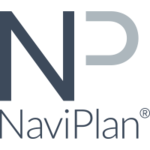Description

NaviPlan

Origin
Comprehensive Overview: NaviPlan vs Origin
NaviPlan and Origin are both financial planning software solutions widely used in the financial services industry. Here’s a detailed overview of each:
a) Primary Functions and Target Markets:
NaviPlan:
- Primary Functions: NaviPlan is primarily a comprehensive financial planning tool that offers both goal-based and cash-flow-based planning capabilities. It focuses on providing detailed and sophisticated financial analyses, including retirement planning, estate planning, tax projections, education funding, and investment analysis.
- Target Markets: Its main target audience includes financial advisors, planners, and wealth management professionals who require in-depth financial modeling and detailed, client-specific planning capabilities.
Origin:
- Primary Functions: Origin is a financial wellness platform that typically focuses on providing holistic financial planning and educational resources. It often integrates employee benefits with personal financial planning, making it useful for financial advisors working with corporate clients to improve employee financial literacy and wellness.
- Target Markets: Its primary market includes corporate clients and their employees, financial wellness consultants, and advisors who focus on providing comprehensive financial well-being solutions to employees in a corporate setting.
b) Market Share and User Base:
-
NaviPlan: As a long-standing player in the financial planning software market, NaviPlan holds a significant share, especially among financial advisory firms and wealth management professionals. It is well-regarded for its depth of analysis and detailed reporting capabilities, making it popular among those who need a robust, comprehensive planning solution.
-
Origin: While not as established as NaviPlan in traditional financial advisory roles, Origin has carved out a niche in the corporate employee benefits market. Its focus on financial wellness rather than purely financial management gives it an edge in markets that prioritize employee financial education and wellness. Its user base is smaller compared to NaviPlan, but it is growing as more companies adopt financial wellness programs.
c) Key Differentiating Factors:
NaviPlan:
- Depth and Detail: Known for its detailed analysis tools, NaviPlan provides comprehensive simulations and plans that cater to high-net-worth clients and complex financial scenarios.
- Versatility: It offers a balance between goal-based and cash-flow-based planning, making it versatile for various financial planning needs.
- Established Reputation: With decades in the market, NaviPlan is well-trusted with a proven track record among financial industry veterans.
Origin:
- Employee Focus: Origin’s strength lies in integrating financial planning with employee wellness programs, providing tools that can improve financial literacy and wellness.
- User Experience: It often emphasizes user-friendly interfaces and accessibility, aiming to make financial planning straightforward for users who may not be financial experts.
- Engagement Tools: Provides tools designed to increase employee engagement and improve financial acumen among employees as part of HR benefit packages.
In summary, while NaviPlan is preferred by traditional financial advisors for its in-depth financial planning capabilities, Origin targets the modern corporate landscapes where employee financial wellness is a priority. Both have distinct market positions and serve different, albeit occasionally overlapping, client needs.
Contact Info

Year founded :
Not Available
Not Available
Not Available
Not Available
Not Available

Year founded :
2004
Not Available
Not Available
France
Not Available
Feature Similarity Breakdown: NaviPlan, Origin
NaviPlan and Origin are both financial planning software solutions often used by financial advisors to assist clients in managing their finances, investments, and retirement plans. While I don't have access to specific proprietary analysis or a direct comparison from internal documents, I can provide a general feature similarity breakdown based on common knowledge about such products:
a) Core Features in Common
-
Financial Planning: Both platforms offer comprehensive financial planning tools that encompass tax, retirement, estate, and investment planning.
-
Cash Flow Analysis: They provide ways to simulate and project cash flow, helping advisors plan for different financial scenarios with their clients.
-
Goal Setting and Monitoring: Assist clients in setting financial goals, such as buying a home, saving for education, or planning for retirement, and track the progress towards these goals.
-
Reporting Tools: Generate detailed financial reports and presentations that can be shared with clients.
-
Integration Capabilities: Both solutions typically offer integration with various financial data sources and other financial tools to provide a comprehensive financial overview.
-
Risk Assessment and Management: Tools for assessing a client’s risk tolerance and aligning investment strategies accordingly.
b) User Interface Comparison
-
Design and Usability: NaviPlan is known for its robust analytical capabilities, possibly making it appear complex, especially to new users. However, it provides a guided interface for thorough financial analysis. Origin, on the other hand, often strives for a more modern, user-friendly interface that may appeal to users seeking an intuitive experience.
-
Customization: Both platforms offer customizable dashboards and reports, though the level of customization and user control over the interface may vary. NaviPlan might lean more towards functionality, while Origin might emphasize ease of use.
-
Navigation: Origin might provide a sleeker, more intuitive navigation experience, catering to users who prefer straightforward usability. NaviPlan might have more detailed menus to cater to power users who want access to deep and comprehensive analytics.
c) Unique Features
-
NaviPlan:
- Detailed Tax Planning: NaviPlan is recognized for its in-depth tax planning features, offering advanced tax calculations which can be very beneficial for complex financial situations.
- Scenario Analysis: Offers robust scenario modeling, allowing advisors to compare different financial scenarios comprehensively.
-
Origin:
- Real-Time Collaboration: Origin may offer superior real-time collaboration features that enhance the experience for both advisors and their clients.
- User Experience: Its emphasis on user experience might include features like interactive client portals or more visually driven dashboards.
While both platforms share many similarities, the choice between them often depends on an individual advisor’s needs, the complexity of the financial plans they handle, and personal preference for user interface design and usability.
Features

Not Available

Not Available
Best Fit Use Cases: NaviPlan, Origin
NaviPlan and Origin are both financial planning software solutions that cater to different needs and use cases within the financial services industry. Here's how they typically align with different business types and projects:
NaviPlan
a) For what types of businesses or projects is NaviPlan the best choice?
NaviPlan is particularly well-suited for:
-
Financial Advisors and Planners: NaviPlan is ideal for financial advisors and planners who need comprehensive, detailed financial planning tools. It is favored by those who offer services to clients with complex financial situations, requiring sophisticated cash flow projections, retirement planning, and tax strategies.
-
Wealth Management Firms: Firms that manage high-net-worth clients benefit from NaviPlan's robust capabilities in detailed financial modeling and custom scenario analysis, which help in meeting intricate client demands.
-
Accounting Firms with Financial Planning Offerings: Accounting firms looking to expand their services to include in-depth financial planning can leverage NaviPlan to deliver accurate and personalized plans.
-
Large Institutions with Diverse Financial Products: Banks and other large institutions can use NaviPlan to offer personalized financial advice that encompasses investment strategies, insurance needs, and retirement planning.
Origin
b) In what scenarios would Origin be the preferred option?
Origin is best suited for:
-
Employee Financial Wellness Programs: Origin excels in environments focused on offering financial wellness programs as part of employee benefits. It's particularly advantageous for companies that want to provide their employees with access to financial education, advice, and planning tools.
-
Start-ups and Tech Companies: Tech companies and start-up environments, known for offering holistic employee benefits packages, may choose Origin to enhance their financial wellness offerings.
-
HR Departments Looking to Enhance Employee Engagement: Organizations aiming to improve employee satisfaction and retention through comprehensive benefits packages might find Origin to be an effective tool for enhancing financial literacy and security.
d) How do these products cater to different industry verticals or company sizes?
-
Industry Verticals:
-
Financial Services: NaviPlan caters to the needs of professionals within the traditional financial services sector, focusing on deep financial planning capabilities. Origin, on the other hand, serves companies across various industries that prioritize employee financial wellness, making it versatile beyond financial services alone.
-
Corporate and Employee Benefits: Origin is designed for HR departments and benefits managers across industries, whereas NaviPlan is more anchored in financial advice and wealth management verticals.
-
-
Company Sizes:
-
Large Enterprises and Financial Institutions: NaviPlan is particularly effective for larger institutions with more resources and a need for comprehensive financial planning tools applicable to a broad client base.
-
Medium and Small-sized Companies: Origin is more scalable for mid-sized to smaller companies that wish to integrate financial wellness into their employee benefits without needing the extensive functionalities that NaviPlan offers.
-
Both products, while addressing different needs and contexts, provide valuable tools to enhance financial decision-making and planning, tailored to their specific target audiences and use cases.
Pricing

Pricing Not Available

Pricing Not Available
Metrics History
Metrics History
Comparing undefined across companies
Conclusion & Final Verdict: NaviPlan vs Origin
To provide a conclusion and final verdict for NaviPlan and Origin, it’s important to evaluate them based on their features, usability, cost-effectiveness, and specific user needs. Here's a detailed analysis:
Conclusion
a) Best Overall Value:
Choosing the product that offers the best overall value depends largely on the specific needs and circumstances of the users. NaviPlan and Origin are financial planning tools that cater to different segments of the market. If detailed, comprehensive planning features and in-depth analysis are priorities, NaviPlan might emerge as the better choice. On the other hand, if user-friendliness and accessibility are more critical, especially for smaller firms or individual financial planners, Origin could be more suitable.
b) Pros and Cons:
NaviPlan:
-
Pros:
- Robust analytical tools meant for complex financial planning.
- Comprehensive tax planning and retirement strategies.
- Ability to handle a wide variety of financial scenarios.
- Strong reputation and reliability among professional advisors.
-
Cons:
- Can be complex and might have a steeper learning curve for new users.
- Higher cost might not be justifiable for smaller firms or individual advisors.
Origin:
-
Pros:
- User-friendly interface with ease of use.
- More accessible pricing structure, making it attractive to smaller firms or independent advisors.
- Good customer support and intuitive setup.
- Agile in incorporating user feedback into upgrades.
-
Cons:
- Might not cover as wide a range of complex financial scenarios as NaviPlan.
- Potentially less suited for high-end clients requiring elaborate financial analyses.
c) Recommendations:
-
For Users Needing In-Depth Analysis: Financial planners handling complex cases, such as those involving significant tax implications or intricate retirement planning, will find NaviPlan's robust features invaluable. Its ability to deal with sophisticated financial scenarios can help advisors deliver comprehensive service to high-net-worth clients.
-
For Smaller Firms or Individual Advisors: Origin stands out for its simplicity, user-friendly interface, and cost-effectiveness. It's particularly suitable for practices prioritizing ease of use, engagement, and those looking for a straightforward financial planning tool without the need for extensive analytical capabilities.
-
Trial and Evaluation: Users are advised to take advantage of any free trials or demonstrations offered by both platforms to ascertain which solution aligns best with their business needs and workflow preferences. Testing the software hands-on can provide practical insights beyond theoretical assessments.
Overall, the choice between NaviPlan and Origin should be based on the specific needs of the user, considering the complexity of financial scenarios they typically deal with, budget constraints, and the importance they place on detailed analytics versus ease of use.




